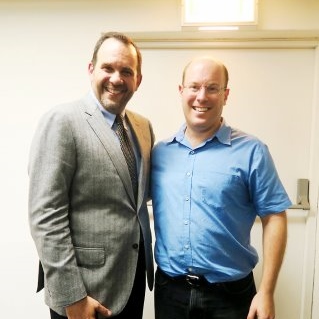
SA

Cremation – the ultimate taboo in Judaism?
TALI FEINBERG
So explained Professor Adam S. Ferziger in a lecture hosted by the SA Jewish Museum and the Isaac and Jessie Kaplan Centre for Jewish Studies at the University of Cape Town.
Ferziger is an award-winning scholar of modern and contemporary Judaism. He holds the Samson Raphael Hirsch Chair for Research of the Torah with Derekh Erez Movement in the Israel and Golda Koschitzky Department of Jewish History and Contemporary Jewry at Bar-Ilan University, in Ramat-Gan, Israel.
“There is no question that cremation has personal, spiritual and Jewish legal ramifications. Along with this core debate, it is a way of defining Jewish identity – who is in and who is out,” he explains.
Ultimately, he sees cremation as the “litmus test” and fulcrum of defining Jewish identity at different times.“It is hard to say who we are – it is easier to say who we are not,” explains the professor.
Delving into historic texts, Professor Ferziger showed as part of his lecture how rabbis debated the issue as it arose at the beginning of the 20th century. Rabbi Amram Mordekai [Markus] Hirsch wrote in Hamburg in 1901 that cremation is forbidden, but if it does take place, the ashes may be buried in a separate area of the cemetery from those who are buried. “Hirsch made a compromise so as to not completely exclude those who were cremated.”
However, four years later, Rabbi Meir Lerner completely disagreed with this. He described those who chose cremation as forfeiting their Jewish identity and said they must be excluded from the cemetery and the community. “He was creating a boundary of who is Jewish and who is not,” explained Ferziger.
Even Rav Abraham Isaac Kook, who was known for his tolerance of all Jews, didn’t accept cremation. As the Chief Rabbi of Palestine in 1931, he ruled that no cremated ashes of Jews could be buried in the land of Israel.
The debate even came to Cape Town, where Rabbi Moshe Hayyim Mirvish of the Beth Din wrote to Rav Kook, asking for his advice on the matter in 1934. He wrote: “A crematorium had been built in the city and individual members of the Jewish community had put in writing their desire to be cremated after death.” Rav Kook responded that “no kosher Israelite should participate in the burial of these cremated ones”.
However, the discussion was turned on its head after the tragic events of the Holocaust, when millions of Jews were cremated after being murdered by the Nazis. Their surviving families began to request that any ashes found in the death camps should be buried in Israel. And so, a special temporary decree was made to bury the ashes in Israel. Chief Rabbi Ben-Zion Meir Hai Uziel commanded that they be given a proper Jewish burial.
“Some saw the cremation of Holocaust victims as a form of atonement for those who had chosen to be cremated,” added Professor Ferziger.
Then Jews immigrating to Israel from the former Soviet Union arrived with urns of family members’ ashes, and wanted to bury these in Israel. Chief Rabbi Mordechai Eliyahu wrote in 1990 that these Jews may have not had the option to bury their dead, nor were educated about the Jewish requirement of Earth burial, in the oppressive former Soviet Union. So, he said: “This constitutes coercion, and it is therefore a mitzvah to inter their ashes in the cemetery.”
However, Ferziger said, while these instances showed the laws becoming more relaxed, the younger generations began to turn away from cremation. For example, parents had requested that their children cremate them, and the children had gone to rabbonim to ask if they could disobey their parents’ request. This also happened in the Reform community, which had allowed cremation since 1904.
In a response to such a query, Reform rabbis wrote that they “actively discourage the practice… because burial is the normative traditional Jewish practice and that, after the Holocaust, cremation has become associated with the darkest period of human history”. They even allowed the children to disobey their parents’ wishes.
“The Holocaust changes the conversation,” explains Professor Ferziger. “We see how Jews now define their behaviour, identity and choices in relation to the Holocaust, and how this debate around cremation is the prism through which we define ourselves, and the lens through which to view the evolution of Jewish identity.”




